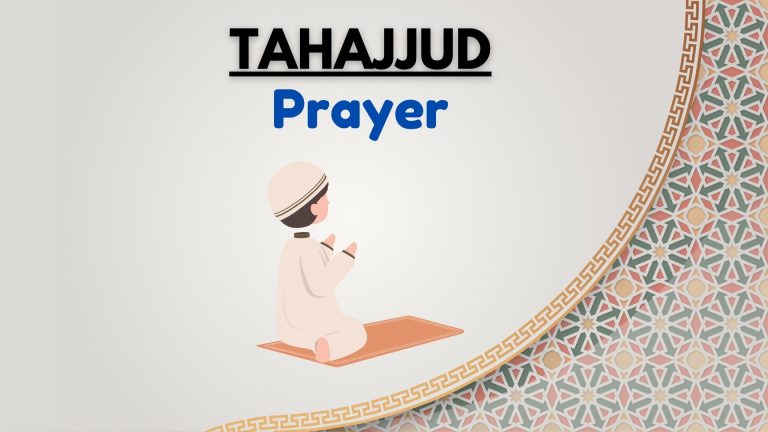Maghrib Prayer and its Impact on Life
Praying five times a day might seem like a lot to do. But it’s important to know that it can bring you many good things for your heart, mind, and body. When you pray regularly, it can help you feel more peaceful and connected to your faith.
It can also give you a sense of purpose and make you feel closer to the people around you. So, even though it might feel challenging, praying regularly can bring you many benefits and make your life more fulfilling.
The Maghrib is one of Islam’s five obligatory prayers and holds significant benefits that many Muslims might not fully appreciate. This article explores the mystical dimensions of the Maghrib prayer, highlighting its various effects, from strengthening faith to personal growth and deepening one’s connection with Allah SWT.

Origin and Meaning of The Maghrib Prayer
The Maghrib prayer, also known as the evening prayer, is performed after sunset and holds immense significance in Islam. The term ‘Maghrib’ directly translates to ‘sunset’ in Arabic, reflecting the timing of this prayer.
This prayer symbolizes gratitude for the day’s blessings. It offers a moment for spiritual reflection as day transitions into night, mirroring nature’s peaceful rhythm.
What is the Timing For Maghrib prayer?
The Maghrib is associated with the setting sun and is observed immediately after sunset until dusk. It pauses daily activities, inviting Muslims to center themselves through mindful praise and submission to Allah SWT amidst their daily routines.
What Is The Best Time for Maghrib Prayer?
The best time to perform this prayer is sunset, when the sun has completely set beneath the horizon. This marks the transition from day to night and the start of a new prayer period for Muslims.
Performing this prayer at this time allows Muslims to connect with Allah SWT after a long day. It’s a chance to express gratitude, seek forgiveness, and reflect on their actions.
Structure of the Maghrib Prayer
Importance of Sunnah Rak’ahs
The Prophet Muhammad PBUH emphasized the importance of the two voluntary rak’ahs after this prayer. He stated that whoever persists in praying twelve rak’ahs daily and nightly will have a house built for them in Paradise. It includes four rak’ahs before Zuhr, two rak’ahs after Zuhr, two rak’ahs after Maghrib, two rak’ahs after Isha’, and two rak’ahs before Fajr.
The Virtues Of Maghrib Prayer
It holds numerous virtues and benefits, including increased faith and the expiation of sins. It also contributes to improvements in spiritual and mental well-being.
1. Enhancement of Faith
It plays a significant role in strengthening one’s faith. This daily spiritual practice encourages believers to reflect deeply, fostering a closer relationship with Allah SWT.
Prophet Muhammad PBUH emphasized patience and glorification of Allah SWT during this prayer. This deepens one’s devotion to God and helps in facing life’s challenges with resilience and optimism.
2. Removal of Sins
This prayer is essential in Islam for its ability to cleanse sins and enhance spirituality. Sincerity in this prayer allows believers to seek forgiveness from Allah SWT, purifying their souls of sins.
By acknowledging faults and seeking repentance through this prayer, individuals experience a sense of renewal and purification. They know Allah’s mercy is readily available to those who sincerely turn to Him.
3. Spiritual and Mental Benefits
Here are the key benefits of the Maghrib:

Maghrib Prayer’s Specific Benefits
Here are the benefits of this prayer.
1. Connection with the Divine
This prayer is crucial to strengthening one’s relationship with Allah SWT. Individuals open themselves to direct communication with Allah SWT by dedicating this time to worship. It is a moment of silence and focus where one can express hopes, fears, and gratitude.
It helps establish a personal relationship with God, seeking His guidance and mercy. It ultimately brings believers closer to Allah SWT and helps them find peace in His presence.
2. Discipline and Time Management
With its short window, the timing of the Maghrib requires discipline and assists in developing skills such as time management. This practice helps Muslims become more efficient in managing both work and prayer.
The consistent practice of this prayer instills discipline, enabling individuals to organize tasks efficiently and achieve greater productivity. Moreover, by setting aside time for prayer at sunset, Muslims demonstrate discipline and commitment to fulfilling Allah’s commands.
3. Social and Community Aspects
It holds significant social and community aspects within Islam. When Muslims gather in the congregation for this prayer, it fosters a sense of unity, brotherhood, and solidarity among believers. It allows individuals to connect with others, strengthen existing relationships, and form new friendships based on their shared devotion to Allah SWT.
Praying Maghrib together shows that all Muslims are equal before Allah SWT, no matter their differences. This helps in building a supportive and inclusive Muslim community.
4. Health and Wellness Aspects
Regular performance of the Maghrib offers numerous health and wellness benefits. One of the key physical benefits is its effect on the musculoskeletal system. The prayer involves physical movements and postures that promote flexibility, strength, and overall physical health.
Additionally, the mental benefits of this prayer, such as mindfulness and stress relief, contribute to overall well-being. Studies have shown that regular prayer can have positive effects on mental health, including reduced anxiety and depression.
Repercussions of Missing Maghrib Prayer
Missing this prayer has serious spiritual ramifications in Islam. It is considered a breach of duty to worship Allah SWT and maintain a close relationship with Him. Individuals who neglect this important prayer risk missing out on forgiveness and blessings from Allah SWT.
Practices Associated with Maghrib
Sunnah prayers before and after Maghrib enhance the spiritual experience of the prayer. Additionally, reciting specific Surahs during the prayer further contributes to its spiritual depth. These practices enhance the spiritual benefits of the prayer and deepen the connection with Allah SWT.
Recitation of Specific Surahs During Maghrib
During this prayer, it is recommended to recite specific Surahs that hold significant meaning and benefits. These Surahs are as follows:
1. Surah At-Tur (Surah 52)
This Surah emphasizes the greatness of Allah’s creation and serves as a reminder of His power and authority. It highlights the signs of Allah’s existence and the consequences for those who deny His signs.
2. Surah Al-Falaq (Surah 113)
This Surah seeks protection from evil and harm, invoking Allah’s safeguard against any form of negativity or malicious intentions. It is a supplication for protection from the unseen dangers of the night.
3. Surah An-Nas (Surah 114)
This Surah seeks refuge in Allah SWT from the whispers of Shaytan (Satan). It acknowledges Allah SWT as the ultimate protector from any harm or evil influences. It is a supplication for seeking Allah’s protection from the evil within oneself and external sources.
4. Other short Surahs
Reciting shorter Surahs like Surah Al-Ikhlas (Surah 112) is common during the two voluntary rak’ahs after the obligatory prayer. This surah emphasizes the oneness of Allah SWT and adds to the spiritual significance of the post-Maghrib. These Surahs are concise but carry profound meanings, enhancing the spiritual experience of the prayer.
During this prayer, Muslims seek spiritual protection and guidance by reciting these specific Surahs. It allows them to connect with Allah SWT, enriching their worship experience and strengthening their faith.
FAQs
Can I combine Maghrib with other prayers if I’m busy?
According to Islamic teachings, combining prayers is only allowed in specific circumstances, such as travel or illness. Otherwise, it is recommended that they perform prayers at their designated times, including the Maghrib.
What should I do if I miss the Maghrib?
If you miss this prayer, making it up as soon as possible is important. You can do this by praying as soon as you remember or have the opportunity.
Can I pray Maghrib alone, or is congregation preferred?
While praying in a congregation is encouraged, especially for the Maghrib prayer, it is permissible to pray alone if you cannot join a congregation.
Can I pray the Sunnah rak’ahs of Maghrib at home if I miss them at the mosque?
Yes, you can pray the Sunnah rak’ahs of Maghrib at home if you miss them at the mosque. It is important to make them up as soon as possible.
Conclusion
The Maghrib prayer, with its rich spiritual significance and numerous benefits, holds a special place in the lives of Muslims. It serves as a powerful reminder of the importance of regular prayer and its impact on one’s spiritual and physical well-being.
Through this prayer, Muslims strengthen their faith, seek forgiveness, and find peace in the remembrance of Allah SWT. It serves as a time for reflection, gratitude, and connection with the divine, offering solace and guidance amid life’s challenges.





